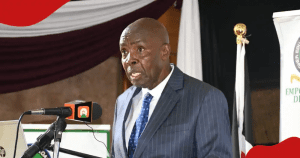Keywords: Government Policy, Economic Management, Fiscal Policy, Globalization, Vulnerable Citizens, External Shocks, Inflation, Growth.

Is the economy of a nation truly governable by its government? Or is this a notion fading away in the winds of globalization? These questions have gained importance as we see national economies become increasingly intertwined with global events, causing the control once held by national policymakers to dwindle.
The Era of Government Steering
Decades ago, it was generally accepted that economies could be guided, with the government at the helm. Take, for instance, the UK’s Treasury in the 1960s. They possessed a macroeconomic model, which viewed national income as the sum of consumption, investment, and government spending, effectively making the budget the vehicle of economic performance. By adjusting its spending and taxation, the government believed it could guide the country towards full employment, GDP growth, and low inflation.
Globalization Changes the Game
Fast forward to the present day, where economic theories have reduced the state’s intervention capacity, yet the belief in government control over economic performance remains deeply ingrained. But global trends increasingly challenge this belief. Inflation and growth, two key indicators of economic performance, have been shown to be influenced by global events far outside the reach of any single government.
A Call for Pragmatism
When governments present detailed predictions for economic performance in the coming years, such as the UK’s recent budget announcement, they maintain the illusion of control over uncontrollable variables. Rather than holding onto this illusion, governments should leverage fiscal policy to shield their most vulnerable citizens from external shocks that often accompany global events.
Conclusion
The role of governments in steering the economy seems to be undergoing a paradigm shift. No longer can we cling to the illusion that governments can control every aspect of their economies. Instead, the focus should shift to creating robust fiscal policies aimed at shielding the vulnerable and promoting resilience amidst the disruption caused by global events.
Your thoughts, queries, and comments are much appreciated. Let’s engage in this critical discussion, and together, delve deeper into the evolving role of governments in economic management.







